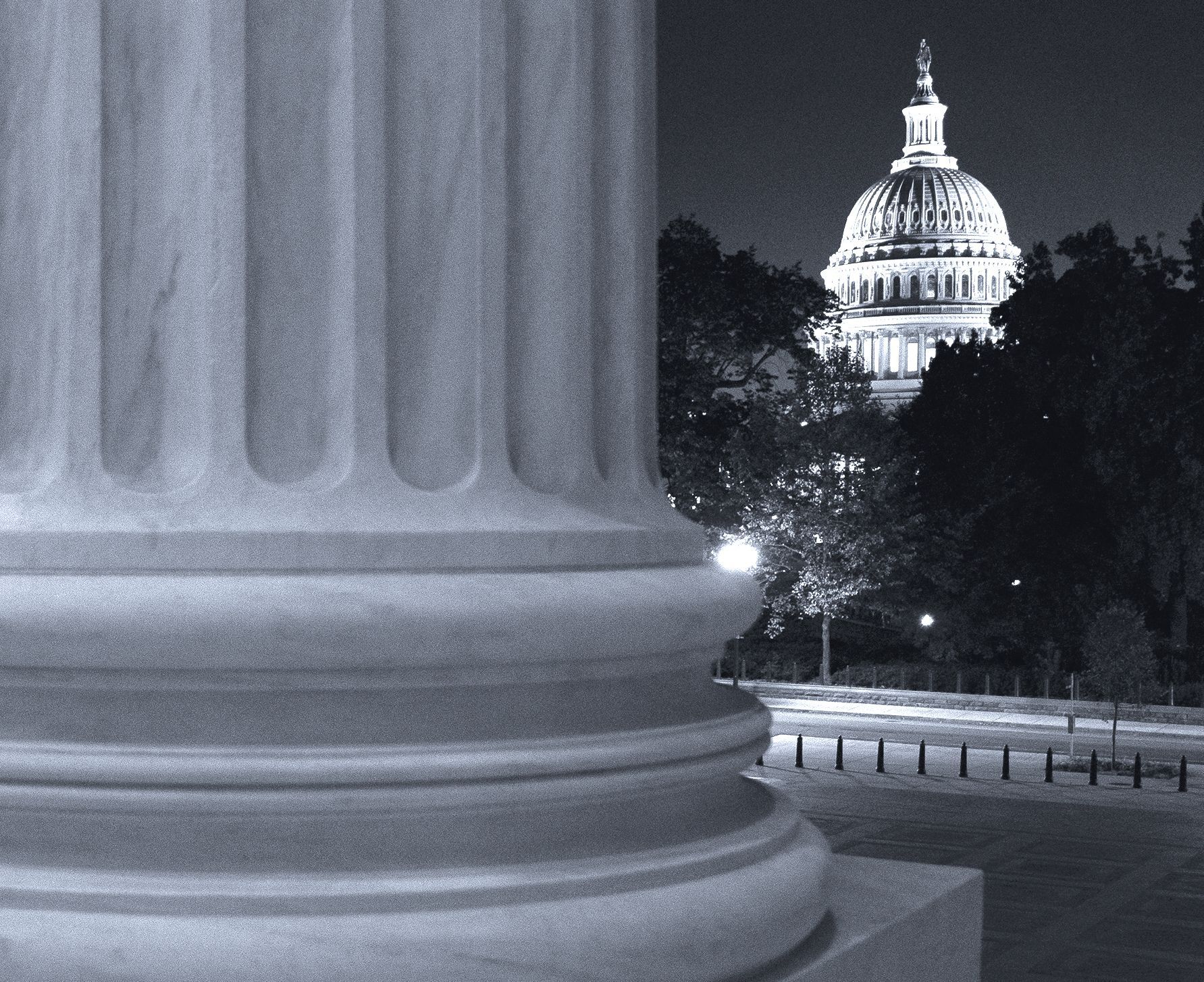
New Sanctions Also Authorized on Russian Financial Institutions, Elites, and Sovereign Debt, with UK and EU Sanctions to Follow
The Biden administration announced measures this week in response to the Russian Federation's (Russia) activities targeting Ukraine. First, on February 21, 2022, following decrees by Russia recognizing the independence of two regions of Ukraine, the Donetsk People's Republic (DNR) and Luhansk People's Republic (LNR) regions, the Biden administration issued a new Executive Order (EO) Blocking Property of Certain Persons and Prohibiting Certain Transactions With Respect to Continued Russian Efforts to Undermine the Sovereignty and Territorial Integrity of Ukraine. As discussed in greater detail below, the EO places restrictions on these regions that are very similar to those already in effect against the Crimea region of Ukraine. Although the EO is effective immediately, General License 17 authorizes a wind-down period until March 23, 2022. Second, effective immediately with a wind-down period for some entities, the U.S. Department of Treasury's Office of Foreign Assets Control (OFAC) added over 50 individuals, entities, and Russian vessels to OFAC's list of Specially Designated Nationals (SDN List). These new designations include two key Russian financial institutions and their subsidiaries along with Russian elites and their families. Finally, in parallel with the new EO, on February 22, 2022, OFAC issued Directive 1A Under EO 14024 prohibiting U.S. financial institutions from participating in the secondary market for ruble and non-ruble denominated debt issued by Russia after March 1, 2022.
Sanctions on DNR and LNR Regions
Noting that Russia's purported recognition of the DNR and LNR regions of Ukraine "contradicts Russia's commitments under the Minsk agreements and further threatens the peace, stability, sovereignty, and territorial integrity of Ukraine, and thereby constitutes an unusual and extraordinary threat to the national security and foreign policy of the United States," the newly issued EO prohibits:
- New investment in the DNR or LNR regions;
- The import into the United States, directly or indirectly, of any goods, services, or technology from the DNR or LNR regions;
- The export, reexport, sale, or supply, directly or indirectly, from the United States, or by a U.S. person/entity, of any goods, services, or technology to the DNR or LNR regions; and
- Any approval, financing, facilitation, or guarantee by a U.S. person/entity of a transaction by a foreign person where the transaction by that foreign person would be covered by these prohibitions if performed by a U.S. person/entity or within the United States.
In order to limit the impact of these measures, OFAC also issued five general licenses relating to humanitarian activities involving the DNR and LNR regions:
- Export or reexport of food, medicine, and medical devices related to the prevention, diagnosis, or treatment of COVID-19 (General License 18);
- Telecommunications, internet, and mail services to these regions (General License 19);
- International organizations and entities including the United Nations, the Red Cross, and various development banks (General License 20);
- Noncommercial, personal remittances for individuals ordinarily residing in the DNR and LNR regions excluding charitable donations and funds for use in business-related activities (General License 21); and
- Services incident to internet-based personal communications, such as instant messaging, chat and email, social networking, sharing of photos and movies, web browsing, and blogging (General License 22).
Next Steps: These restrictions mirror the measures imposed by former President Obama in 2014 against the Crimea region of Ukraine. We recommend that companies expand the measures that they have in place to comply with the sanctions on the Crimea region to cover activities in these two additional regions. These regions include both the "land territory…as well as any maritime area over which sovereignty, sovereign rights, or jurisdiction is claimed based on the purported sovereignty over that land or area." (emphasis added) These measures could include geo IP blocking and screening of customer and user information provided. This would include looking at city names and addresses. Although the EO is effective immediately, General License 17 authorizes certain activities related to the winding down of activities in these regions until March 23, 2022, including the divestiture or transfer to a non-U.S. person of a U.S. person's share of ownership in any pre-February 21, 2022 investment and the winding down of operations, contracts, or other agreements in effect prior to February 21, 2022.
OFAC Prohibitions and Designations
As a part of the EO and existing authorities, OFAC designated over 50 individuals, entities, and Russian vessels that operate or have operated in the financial services sector, technology sector, and defense and related materiel sector of the Russian economy and added them to the SDN List. FAQ 9641 clarifies that a sector determination does not automatically impose sanctions on all persons who operate or have operated in the sector. Included in these measures are two financial institutions seen as crucial to financing the Russian defense industry along with their subsidiaries: Promsvyazbank Public Joint Stock Company (PSB), a Russian state-owned financial institution that is Russia's eighth largest financial institution, and State Corporation Bank for Development and Foreign Economic Affairs Vnesheconombank (VEB), Russia's national economic development institution. The measures also target elites close to Russian President Vladimir Putin viewed by the U.S. as President Putin's inner circle, including Aleksandr Vasilievich Bortnikov, the Director of the Federal Security Service (FSB), and his son Denis Bortnikov, Petr Mikhailovich Fradkov, Chairman and CEO of PSB, and his son Vladimir Kiriyenko.
Next Steps: These designations are effective immediately. However, General License 2 permits transactions with VEB that are related to the servicing of Russian sovereign debt issued before March 1, 2022, and General License 3 permits U.S. persons to participate in wind-down transactions with VEB until March 24, 2022. To address these measures, we recommend that companies institute internal screening procedures to ensure that both current and future investors, as well as customers, users, and partners are neither included on the SDN List or another OFAC sanctions list, nor owned by a listed individual or entity. In line with previous designations, OFAC's restrictions cover any entities that are owned 50 percent or more in the aggregate by a sanctioned party.
Expanding of Sovereign Debt Prohibitions
Additionally, in an effort to cut Russia off from sources of revenue for activities including its invasion of Ukraine, OFAC's Directive 1A expanded the restrictions already in place on dealings involving Russia's sovereign debt. Directive 1A incorporates the existing August 2019 and April 2021 bans which prohibit: (i) U.S. financial institutions from participating in the primary market for ruble or non-ruble denominated bonds issued by certain Russian government institutions issued after June 14, 2021, and (ii) U.S. financial institutions from lending ruble or non-ruble denominated funds to certain Russian government institutions. In addition, Directive 1A prohibits U.S. participation in the secondary market for ruble or non-ruble denominated bonds issued by these entities after March 1, 2022 (further explained by OFAC's FAQ 965).
Next Steps: U.S. companies and asset managers will be prohibited from dealing in Russian sovereign debt issued after March 1, 2022.
Related European Union and United Kingdom Sanctions
On February 21, 2022, the European Union froze the assets of five listed individuals: Aleksei Yurievich Cherniak; Leonid Ivanovich Babashov; Tatiana Georgievna Loback; Nina Sergeevna Faustova; and Aleksandr Evgenevich Chmyhalov. These individuals are Members of State Duma or associated with the Sevastopol electoral commission. We are expecting additional sanctions, however specifics have not yet been announced.
On February 22, 2022, the United Kingdom imposed sanctions on five Russian banks and three individuals. All three individuals have already been sanctioned in the United States. The UK has imposed asset freezes on PSB, Rossiya, Black Sea Bank, IS Bank, and General Bank. The UK government also has indicated that it intends to impose comprehensive sanctions on the DNR and LNR, but these sanctions have not yet come into force.
Key Takeaways
- Companies, in particular those with operations in Russia and Ukraine or who provide SaaS services or downloadable software, should implement measures to prevent transactions with individuals and entities located in the LNR and DNR regions. This includes the expansion of existing compliance measures focused on restricting activities in the Crimea region of Ukraine. We also recommend reviewing these existing compliance measures to ensure that they effectively prevent prohibited activities with Crimea and the LNR and DNR regions.
- All companies should ensure that they have effective measures in place to identify and block transactions with restricted parties, including individuals and entities on the SDN List and other restricted party lists. Companies should rescreen current investors, customers, users, and partners to ensure that none have become restricted parties.
- For entities impacted by these restrictions, it will be critical to wind down any activities in the DNR and LNR regions as soon as possible.
As indicated by President Biden's address on February 22, 2022, the situation is rapidly evolving, and we anticipate that the United States, the European Union, and the United Kingdom will impose additional restrictions should Russia further escalate its activities in Ukraine. We also expect that Russia will retaliate with its own measures in the coming weeks. We are actively following developments in this area and will keep clients apprised as the situation progresses.
For questions regarding the new EO or U.S. sanctions on Russia and certain regions of Ukraine more generally, please contact Josephine Aiello LeBeau, Mike Casey, Anne Seymour, Jahna Hartwig, Kara McDonough, or another member of Wilson Sonsini's national security practice.
[1] See also revisions to the following OFAC FAQs: https://home.treasury.gov/policy-issues/financial-sanctions/faq/updated/2022-02-22.
- Privacy Policy
- Terms of Use
- Accessibility



